Our undergraduate researchers have provided a wide variety of assistance to our faculty affiliates and postdoctoral scholars, including media analyses, gathering sources on databases, and conducting, transcribing, and coding interviews, just to name a few!
URP Funded Projects
2024-2025 URP Projects
"Title: Bias Reporting and Belonging"
Abstract
The purpose of this study is to examine the effectiveness of bias support systems within higher education, and what barriers arise for students of color in reporting and speaking on frequent bias and discrimination that they face. Additionally, the study would get at the root cause of how minority college students cope with biases and what specific things make them feel safe or not safe when at a university or reporting bias, for example collective action, sticking with their respective communities, reporting bias to someone of the same or different identity group, etc. We will be using Prolific to sample Asian, Black, Hispanic, and White college students from institutions across the United States to get a diverse sample of responses and experiences. We expect that students of color may not feel supported by reporting systems when they feel there is no benefit to reporting or when they have negative coping mechanisms, for example they are only told about disciplinary action that is unattainable because of freedom of speech, and instead feel that more inclusive language, cross-cultural conversation, diverse staff, and support with collective action efforts will make students feel more supported and safe at a university. I plan to try to use the survey data I collect to see what the percentages of students who used individual coping strategies, to see what emerges, and if negative regulation strategies for example are connected to lessened feeling of belonging and campus climate, and to hopefully offer recommendations into what university environments can do to best support their students.

"Title: Exploring Contraceptive Use and Decision-Making in Peruvian Women"
Abstract
The study I will be conducting will explore the perspectives of Peruvian college women regarding contraceptive decision-making and their views on these policies. I aim to understand and identify areas for improved policy development and healthcare practices tailored to their specific needs. I will be analyzing individual interviews conducted with college women from Lima, Peru aged 18 to 25 using a qualitative approach. The interviewer asked questions regarding contraceptive knowledge questions, access, decision making processes, and opinions on existing contraceptive policies. Key results I am hoping to achieve is to see how varied levels of contraceptive knowledge play a role in the types of contraceptive methods they decide to use. I also hope to see what different kinds of influences individuals had regarding contraceptives and how that impacted their decisions with contraceptive methods. The study also hopes to analyze how socio-cultural norms and systemic barriers shape contraceptive choices. The significance of this research contributes to the growing body of information on reproductive health in Latin America. It highlights the difference in access to reproductive information and how culturally sensitive discussions are approached in different parts of the world. I hope through analyzing this information we are able to have more equitable reproductive healthcare outcomes and improve contraceptive access in Latin America.

"Title: The Effects of Academic Pressure on South Asian Undergraduate Students: Tobacco and Cannabis Use as a Coping Mechanism
Abstract
Objective: The purpose of this study is to test associations between depression and substance (nicotine and cannabis) use among South Asian students in different fields of study.
Methods: Data was derived from The Healthy Minds Study—Student Survey where participants across the United States were asked to report answers to a range of educational, mental health, and substance use questions. Inclusion criteria required students to be a South Asian male or female. Mental health was assessed using the Patient Health Questionnaire (PHQ-9), a brief, self-report measure of depression. Substance items were cigarette use and cannabis use. Academic fields of study were pre-professional fields, natural sciences, social sciences, business, and engineering. Logistic regression was used to test PHQ scores and substance use outcomes.
Findings/Expected Outcomes: The results for business students indicate that for every unit increase in PHQ-9 scores, there is an approximate 7% increase in both the odds of marijuana and cigarette use in the past 30 days. The results for engineering students indicate that for every unit increase in PHQ-9 scores, there is an approximate 7% increase in the odds of marijuana and an 8% increase in the odds of cigarette use in the past 30 days. The results for natural science students indicate that for every unit increase in PHQ-9 scores, there is an approximate 8% increase in both the odds of marijuana and cigarette use in the past 30 days. The results for pre-professional and social science students indicate that for every unit increase in PHQ-9 scores, there is an approximate 5% increase in the odds of marijuana and a 4% increase in the odds of cigarette use in the past 30 days.
Significance: Engineering and natural science students have a higher risk of smoking cigarettes compared to those in pre-professional and social science academic fields.

"Title: Buried Justice: Unearthing the Human Rights Abuses that Power Our Future"
Abstract
This research paper highlights the pervasive human rights violations in the cobalt mining industry in the Democratic Republic of Congo (DRC), focusing on child labor, worker exploitation, and the accountability of multinational corporations. Through a qualitative analysis of corporate Environmental, Social, and Governance (ESG) disclosures and corporate governance, this paper uncovers discrepancies between corporate commitments and the realities of artisanal miners. Drawing on ethical frameworks and global corporate governance principles, it critically examines why corporate leadership fails to address these injustices despite publicized commitments to ethical sourcing. The paper also highlights the ethical choices modern consumers face in globalized supply chains. It draws on modern and historical sources to highlight a framework for decision-making for corporate leaders and modern consumers. The outcomes include exposing the ethical shortcomings of corporate actors and advocating for systemic reforms that prioritize human rights. By bridging the gap between policy and practice, this research highlights the broader significance of ethical leadership and conscious consumerism in promoting justice and equity in global supply chains.
"Title: Resisting the Carceral State: The Power of Personal Narratives by Incarcerated Black Women"
Abstract
This project studies the personal writings and poems of incarcerated Black women involved in the Voices from Inside prison writing program in order to understand how they resist the carceral state. I propose that expressive art forms like music, poetry, and personal narrative are utilized as forms of resistance by incarcerated Black women. Through these forms of narrative, I have found moments where Black women are in conversation with themselves, ranging from personal gratitude to the mourning of a loved one. However, I argue that through these moments of consciousness-raising, incarcerated Black women are wrestling with their complex inner emotions and shaping a new image for themselves to be active agents in the demand for justice. Ultimately, writing gives incarcerated Black women a voice—allowing them rather than the system to tell their story and therefore shape their identities. Through their narratives, these women learn to trust their own knowledge and intuition rather than the state’s. This leads to the reclamation of their autonomy and an identity separate from the carceral state. Furthermore, the experiences of incarcerated Black women provide us with an analytical view into the intellectual world of Black feminism. Like other Black women, incarcerated Black women have used their intersectional experiences with racial identity, class, and gender to create a knowledge of “critical social theory”. This social theory is designed to resist oppression or oppose social and political injustices.

"Title: Jumping Through Hoops: How Low Reimbursement Rates and Administrative Burdens Undermine Medicaid Beneficiaries’ Health Agency"
Abstract
While there is extensive research demonstrating that low reimbursement rates and administrative burdens, such as complex billing systems, prior authorizations, and payment delays, discourage physicians from accepting Medicaid patients, leading to reduced access to care, longer office wait times, and lower quality of care for beneficiaries, there is a notable gap in understanding how these policy decisions impact beneficiaries' ability to actively manage their own health. Most existing studies primarily focus on how increasing reimbursement rates and reducing administrative burdens improve metrics like appointment availability, wait times, and provider participation rates. While these metrics are important, they fail to capture how these barriers have affected beneficiaries’ ability to engage in the shift towards patient-centered care. The question is: how do Medicaid policy decisions, such as low reimbursement rates and administrative burdens, impact patients’ health agency, or autonomy to make informed decisions regarding their care and take meaningful action to improve their health? To answer this question, I will analyze 97 semi-structured interviews with current or former Healthy Indiana Plan (HIP) beneficiaries from five Indiana cities (South Bend, Fort Wayne, Bloomington, Gary/East Chicago, and Indianapolis) to gain insight into their experiences navigating the program and seeking care. I hypothesize that low reimbursement rates and administrative burdens within Medicaid diminish beneficiaries’ health agency, limiting their ability to assert control over their own health. The analysis of this hypothesis is currently in progress, with preliminary findings yet to be determined.

"Title: The 1918 Influenza Pandemic and the Transformation of Yoruba Religious Landscape"
Abstract
This research examines the impact of the 1918 influenza pandemic on the religious landscape of the Yoruba people, focusing on the emergence and evolution of Aladura churches. Originating in early 20th-century Nigeria during a period of profound social and political upheaval, Aladura churches arose as a response to the pandemic’s devastation and the inadequacies of colonial missionary Christianity. As communities sought spiritual healing and by incorporating elements such as prayer, prophecy, and spiritual healing, Aladura churches provided a means for Yoruba communities to navigate the crises of health and colonialism. The use of sacred objects like anointing oil and holy water reflected traditional beliefs in spiritual power, such as àṣẹ (spiritual authority), and paralleled Yoruba divination practices like Ifá. This syncretism allowed for a culturally familiar interpretation of Christianity that addressed both spiritual and material needs during a time of widespread suffering.
This research employs historical analysis and phenomenological insights to explore how the influenza pandemic catalyzed the growth of Aladura churches. Drawing from sources such as The Yoruba: A New History by Akinwumi Ogundiran and Divining the Self by Velma Love, this study highlights the role of religious adaptation in periods of crisis. Ultimately, this thesis argues that the 1918 influenza pandemic was a pivotal moment in Yoruba religious transformation, shaping the evolution of Aladura churches as resilient expressions of faith and cultural continuity.

"Title: Workplace Discrimination Claims: Barriers, Perceptions, and Psychological Consequences"
Abstract
In the context of North American society, workplace discrimination is a prominent experience. In a February 2023 Center of U.S. workers survey, 48% of Black men and 36% of Black women reported experiencing unfair treatment by an employer due to their race (Horowitz et al., 2023). Discrimination related to race in the workplace has significant consequences. It can threaten the psychological safety and morality of organizations at large, resulting in a loss of human capital (Jaurique et al., 2018). Thus, it is important to consider how individuals are either empowered or discouraged from making official claims about their experiences of discrimination against their workplace. For example, employees may be deterred from speaking up due to negative perceptions from their colleagues. A study by Kaiser and Miller (2001) found that “an African American who failed a test was seen as a complainer when he attributed the failure to discrimination but not when he made other external attributions” (Sinclair, 2021). In contrast, however, a study conducted by Remedios et al. (2015) found that a Black woman was not perceived as a bigger troublemaker when she attributed rejection to compound discrimination versus either racism or sexism. Thus, perceptions may vary both negatively and positively. The present study explores whether employees make these discriminatory-based claims, the psychological consequences of experiencing discrimination in the workplace, and bystanders’ perceptions of those who make discrimination claims. Analyzing these consequences may suggest areas of development for corporations to increase the psychological safety of their workplace culture and how corporations can listen to the concerns of their employees more effectively in the face of discrimination.


"Title: The Ethnographic Gaze: A Decolonial Examination of U.S. and South Africa"
Abstract
This research project explores the long-term impacts of settler-colonial photography in the U.S. and South Africa, showcasing how stereotypes and ideas of a “vanishing race” and “noble savagery” continue to exist until this day. By comparing and contrasting Joseph K. Dixon and the Wanamaker collection in the United States, and Alfred Martin Duggan-Cronin’s work from Kimberley, South Africa, the project critically examines how these visual narratives continue to shape public perceptions and contemporary understanding of Indigenous communities.
Objective: The primary goal of this research is to create a museum exhibition at Indiana University Museum of Archaeology and Anthropology, that juxtaposes colonial depictions of Indigenous peoples from both the Bantu tribes of South Africa and Indigenous communities in the United States, revealing the colonial narratives embedded in these portrayals and encouraging a critical reevaluation.
Methods: The research employs a comparative visual analysis of archival photographs, examining their contexts, themes, and evolving interpretations over time. In addition, data is collected via surveys that ask visitors their opinions in relation to exposing colonial narratives.
Expected Outcomes: This project’s primary goals are to not only highlight the negative consequences colonial photography has had on Indigenous representation, but to also educate individuals, be it local or otherwise, on the trends and patterns of both Duggan-Cronin, Dixon, or others. This exhibit invites visitors to reevaluate and challenge traditionally held notions of Indigenous representation, while simultaneously uplifting the voices of Indigenous people themselves.
Significance: This research contributes to the broader discourse on decolonization and Indigenous resilience. By promoting a more nuanced understanding of Indigenous identity, or perhaps simply retracting the identity assigned to them against their will, Indigenous communities are able to speak for themselves.
2023-2024 URP Projects
"Focus Group Analysis: Student Views of the Palestine-Israeli Conflict"
Jenine Arqawi, Dr. Aziza Khazzoom
Abstract
"Decadal Shifts in U.S Events: Impact on South AsianUndergraduates’ Mental Health"
Aria Desai, Dr. Vivek Vellanki


I am a sophomore in the College of Arts and Sciences, majoring in Psychology and Criminal Justice with a minor in Counseling. My research interests include unveiling why parents and their children have a communication barrier when speaking about certain situations like mental health and what may help to ease the hindrance. In the future, I hope to become a therapist, breaking the stigma surrounding mental health in South Asian communities and bringing light to therapeutic practices like journaling, meditation, therapy, etc.
"Beating in Sync: Emotional Co-Regulation duringDiscussions of Race in Romantic Relationships"
Jahlea Douglas, Dr. James Brooks


I am a senior in the School of Education, with a major in Counseling and Student Services and a minor in Human Sexuality. This is my second year working with the Center for Research on Race and Ethnicity and I am interested in exploring relationships and how different experiences affect relationship quality. This year I am excited to work on a project with Dr. James Brooks that will focus on interracial relationships. Aside from CRESS I am a teaching intern through the Student Academic Center where I help undergraduate students gain basic academic and life skills needed to thrive during their time in college. Additionally, I am a co-researcher on a decoding project through IUHS online. Upon graduation I hope to attend graduate school to study counseling psychology. Outside of research, I enjoy reading, spending time outdoors, and being active!
"Media Analysis of the Legacy of Brown vs. Board of Education 1952-2012"
Mofe Koya, Dr. Clark Barwick


I am a junior at the Kelley School of Business, majoring in Public Policy Analysis and Law, Ethics, and Decision Making. This is my third year working with the Center for Research on Race and Ethnicity and I have learned so much about literary and qualitative research. In addition to my role at CRRES, I am part of the Hutton Honors College where I am both a member of the Funding Board and serve as the Director of Marketing. Moreover, I also provide support, professional development skills, and interview preparation to my peers within the Kelley School of Business by working as part of the Undergraduate Career Services Center. In my free time I enjoy watching TV shows or documentaries, listening to true crime podcasts, and spending time with family and friends.
"Emotion Regulation Processes: How Discrimination Impacts Black/African American Wellbeing"
Anna Sarpong, Dr. Dorainne Green


I am a junior in the College of Arts and Science majoring in Neuroscience with a minor in Psychology. This is my first year working with the Center for Research on Race and Ethnicity Society. I have a variety of research interests centered on studying racial injustice and mental health stigma in marginalized communities, socioeconomic disparities in hiring and business institutions overall, as well as influencing factors of social identity/group belonging in corporate America. I creatively approach my interests through various neuropsychological, sociological, and anthropological perspectives. I have major aspirations in pursuing a career that allows me to coach, connect, and empower underrepresented populations and businesses as well as advocate for positive social and medical impact.
2022-2023 URP Projects
"Beating in Sync: Emotional Co-Regulation duringDiscussions of Race in Romantic Relationships"
Jahlea Douglas, Dr. James Brooks


"Media Analysis of the Legacy of Brown vs. Board of Education 1952-2012"
Mofe Koya, Dr. Clark Barwick


Mofe Koya was an undergraduate student majoring in Public Policy Analysis with a co-major in Law, Ethics, and decision-Making and minoring in Criminal Justice. She is interested in African American literature and history. Mofe worked with Professor Clark Barwick on a project focusing on poet Gwendolyn Brooks and her legacy. Upon graduation, Mofe hopes to pursue a career in law working in criminal defense and social policy.
2021-2022 URP Projects
"Remembering the Racial Violence of American Capitalism: The Destruction of Black Wall Street, 100 Years Later"
Rebekah Amaya, Dr. Steve Rahko
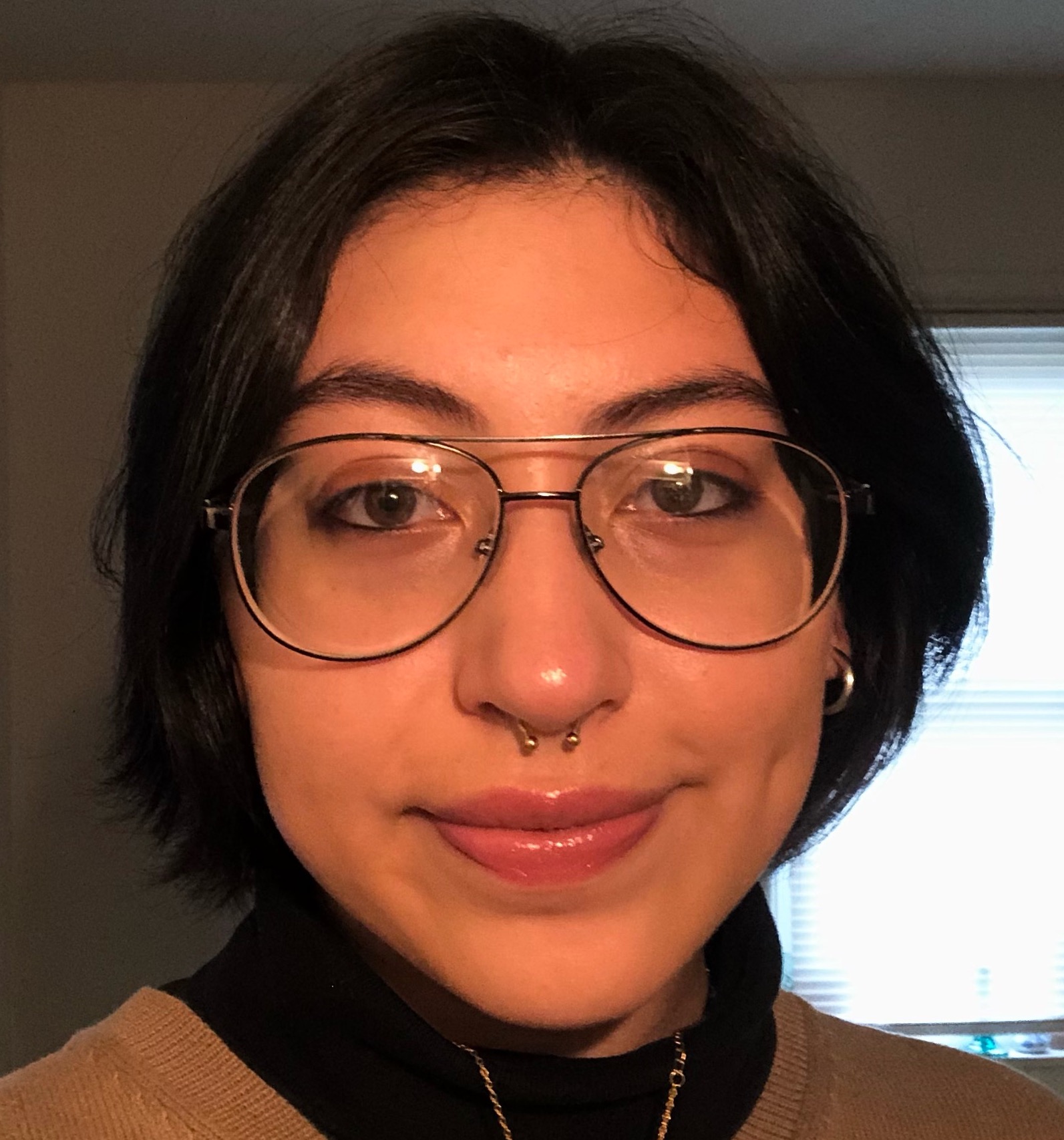

Abstract
This study aims to understand how the three tenets of anti-memory are present in the remembranceefforts of the 2021 Tulsa Race Massacre Centennial. It also explores how activist groups, survivors andcommunity members in Tulsa, Oklahoma combat anti-memory and the discourse that arises whenconfronted with who remembrance serves, and how it is carried out. This research draws on news articles from major news outlets as well as local papers published around the time of the Centennial Commemoration. Findings include:
- How kitsch, which Marita Sturken defines as “something that is consumed and experienced through images, memory, is thought to reside in commodities such as teddy bears, and memorials areaccompanied by gift shops.” (Sturken, 22) is present in the memorialization of the Tulsa Race Massacre
- How economic interests crowd out the centering of victims
- How the diminishment of existing ways of remembering have led to conflict in the community
Finally, this project will also explore how economic and political motivations shift attention away fromrestorative remembrance.

Rebekah Amaya was an undergraduate student majoring in Law and Public Policy and minoring in Critical Race and Ethnic Studies. She is interested in critical race theory, gender studies, and immigration/migration studies. Currently, Rebekah is working with Professor Steve Rahko on a project focusing on public memory and the Tulsa Race Massacre of 1921. After graduation, Rebekah plans on moving to Chicago to work with immigrant's rights groups.
"Healthcare Utilization Among Unhoused People: Are unhoused individuals experiencing disadvantaged treatment in healthcare institutions?"
Maria Jaimes, Dr. Kosali Simon
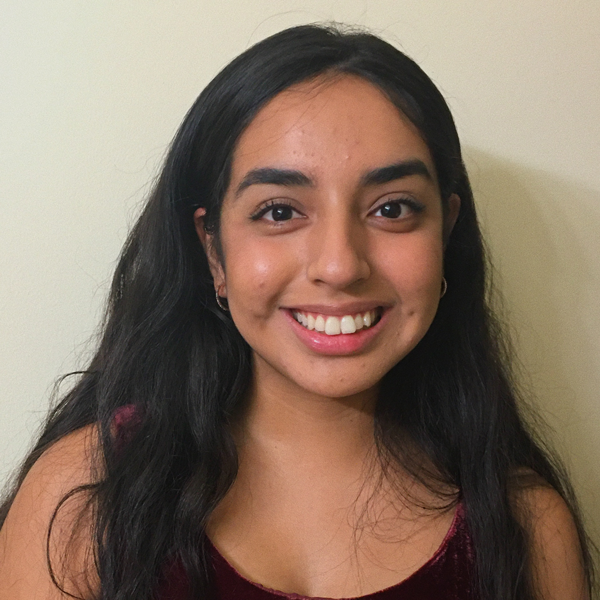
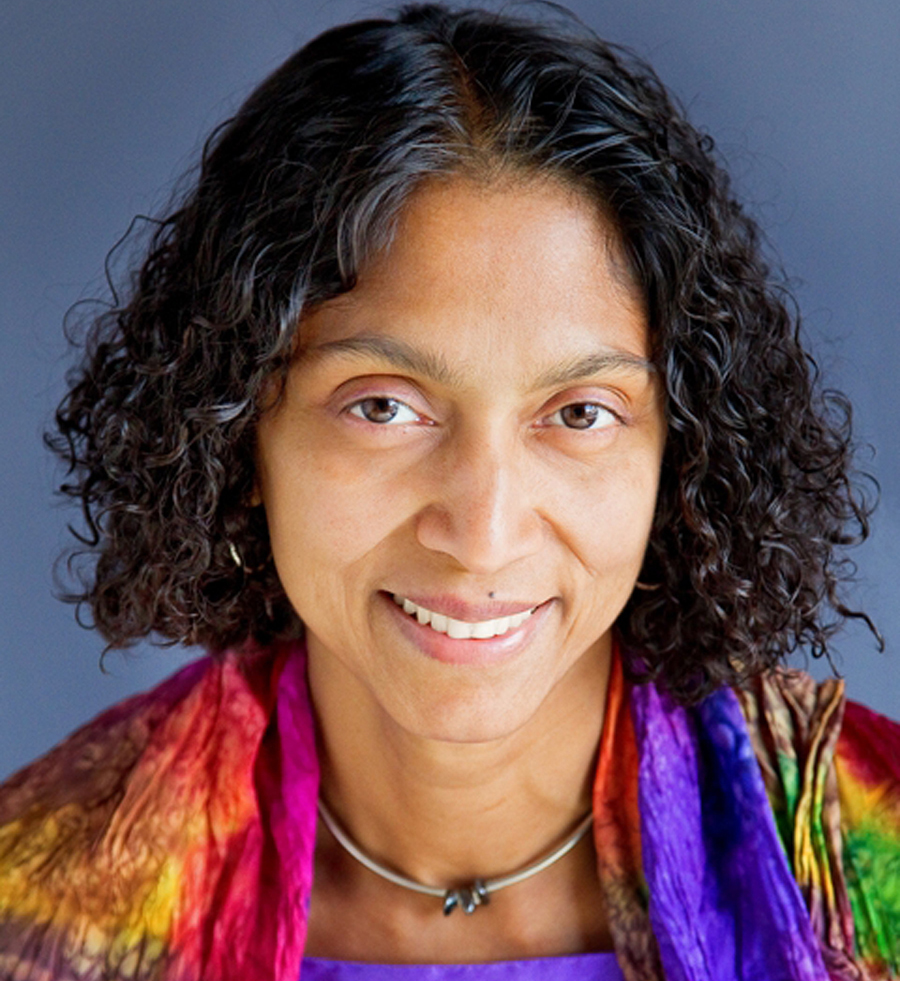
Abstract
This study examines if the social inequities and treatment that unhoused/homeless individuals experience carry onto the healthcare industry. This study is conducted by analyzing data sets collected by the National Hospital Ambulatory Medical Care Surveys (NHAMCS). We create data visualizations that compare the visit characteristics to hospitals and EDs among unhoused and housed patients. Findings showed that visit characteristics among unhoused and housed patients differed in many areas. Unhoused patients were reported to have visits to the ED under a more urgent conditions compared to housed patients. However, unhoused patients had lower admittance rates to hospitals and experienced longer wait times to a first
provider contact. Efforts to reduce inequities among patient treatments should be addressed and further explored. Unhoused people continue to experience social inequities even within the healthcare industry in hospitals and EDs.

Maria Jaimes was an undergraduate student majoring in Biochemistry B.A. and minoring in Spanish. She enjoys learning and exploring sociological, biological, and molecular research. Currently, Maria is working with Professor Kosali Simon on a project focusing on data analysis on the National Hospital Ambulatory Medical Care Surveys (NHAMCS) exploring health treatment inequalities among residents. Maria is interested in pursuing graduate school or medical school upon graduation.
"The Portrayal of Asian Hate Crimes in Local and National Mandarin Media Sources"
Ann Kovoor, Dr. Chinbo Chong
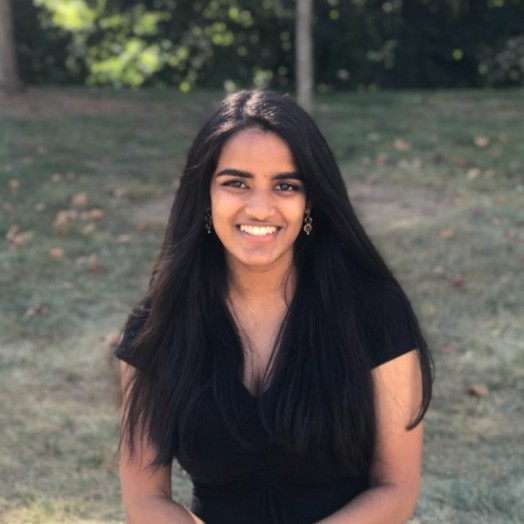
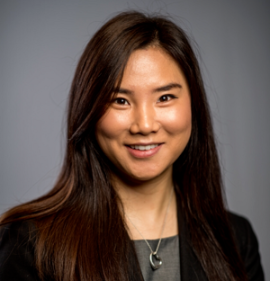
Abstract
Since 2020, with the start of the pandemic, there has been a significant rise in Anti-Asian Hate Crimes all around the US. This study examines two different Mandarin Chinese language media sources and their coverage of Asian discrimination and its after-effects during the COVID-19 pandemic. Previous scholars have mentioned and emphasized the importance of local vs. national news coverage, but these current works have not examined current coverage of anti-Asian hate crimes. Our research focuses on investigating this current event by comparing local vs. national newspaper coverage. Detecting how Anti-Asian racism and discrimination is covered in ethnic media will establish initial findings to build upon for further research.

Ann Kovoor was an undergraduate student majoring in International Studies and East Asian Languages and Culture an minoring in Central Asian Studies. She is interested in Asian hate crimes and human trafficking. Ann worked with Professor Chinbo Chong on a project focusing on how Mandarin language media sources portray hate crimes that affect Asian and Asian Americans in the US. After graduating, Ann is planning on working in the human trafficking prevention and victim rehabilitation industry.
"The Legacy and Future of Gwendolyn Brooks: How do Gwendolyn Brooks’ personal letters inform our understanding of her literature?"
Mofe Koya, Dr. Clark Barwick


Abstract
Gwendolyn Brooks was one of the most influential writers of the twentieth century. In 1950, Brooks became the first African American to be awarded the Pulitzer Prize in poetry, for a volume titled Annie Allen that chronicled the life of an ordinary black girl growing up in the Bronzeville neighborhood on Chicago’s famous south side. Aside from her works of fiction, Gwendolyn Brooks wrote many personal letters during her lifetime that are now preserved in libraries all over the country. I collaborated with Dr. Barwick to analyze her numerous personal letters. Throughout our research, Dr. Barwick and I looked closely for themes in her personal life that could also be seen in her works of fiction. Our ultimate goal was to determine how Mrs. Brooks personal letters could be used to better inform her readers’ understanding of her literature.

Mofe Koya was an undergraduate student majoring in Public Policy Analysis with a co-major in Law, Ethics, and decision-Making and minoring in Criminal Justice. She is interested in African American literature and history. Mofe worked with Professor Clark Barwick on a project focusing on poet Gwendolyn Brooks and her legacy. Upon graduation, Mofe hopes to pursue a career in law working in criminal defense and social policy.
"The Implication of the Rapid Expansion of Politically Polarized Media: Tracking the Trend of Prejudice and Civil Rights Voting Patterns"
Bella Melrose, Dr. Alberto Ortega


Abstract
The questions examined in this study are two-fold: Does media bias affect Congressional voting patterns pertaining to civil rights? While, additionally considering, does media bias affect recorded feelings of explicit racial prejudice? This study assesses the progressive popularity of politically-polarized news sources – particularly, Fox News and MSNBC – between 2004 and 2008. During the years considered within this study, viewership figures of slanted news grew exponentially, implying a growing preference amongst American adults in consuming polarized media. Our study finds a significant effect of American adults’ increasing preference for slanted news on both Congressional support for civil rights legislation and American adults’ feelings of explicit racial prejudice.

Bella Melrose was an undergraduate student majoring in Law & Public Policy in the O’Neill School of Public and Environmental Affairs, coupled with a Political Science minor, and Political and Civic Engagement (PACE) certificate. Bella is interested in researching policy regarding civil rights, education, and environmental protection and the trends of polarization in the American electorate. Bella assisted Professor Alberto Ortega on a project correlating the 1996 syndication of Fox News with alterations in Congressional voting patterns pertinent to civil rights.
"Gender/Racial Bias in Software Engineering Hiring: The Role of Diversity Demand across Job Levels"
Kemal Perdana, Dr. Koji Chavez
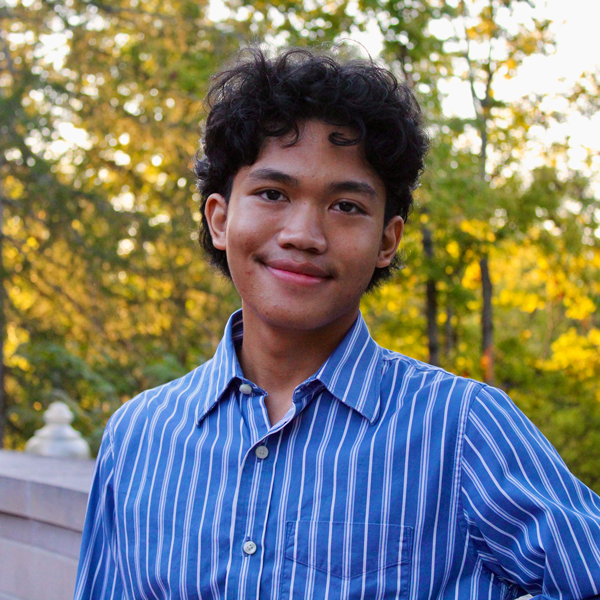

Abstract
Previous research has established the prevalence of hiring discrimination against women and people of color, but variation in hiring discrimination across job levels has not been sufficiently studied. We develop two hypotheses based on the “glass ceiling” and “sticky floors” theories. We tested the hypotheses using data from a correspondence audit study of software engineering positions. We find strong evidence of “sticky floor” discrimination against Black men. However, sticky floors can not explain why white women are preferred when applying to senior positions. To better understand this puzzle, we conducted 60 semi-structured in-depth interviews with individuals involved in the software engineering hiring process. The qualitative analysis highlights the importance of the “demand for diversity” in counteracting bias. We draw from theories of racialized organizations to develop mechanisms that explain why women, particularly white women, benefit from the demand for diversity while Black men do not.

Kemal Perdana was an undergraduate student majoring in economics and sociology. His research interests include labor organizing, economic inequality, and the labor market. Kemal worked with Professor Koji Chavez on a project focused on hiring discrimination for software engineers and financial analysts. Kemal hopes to use the research skills he learns to conduct future independent research on economic and sociological topics he is passionate about.
"Passport Photographs: A Historical Reflection and Artistic Revisitation"
Luke Swain, Dr. Vivek Vellanki

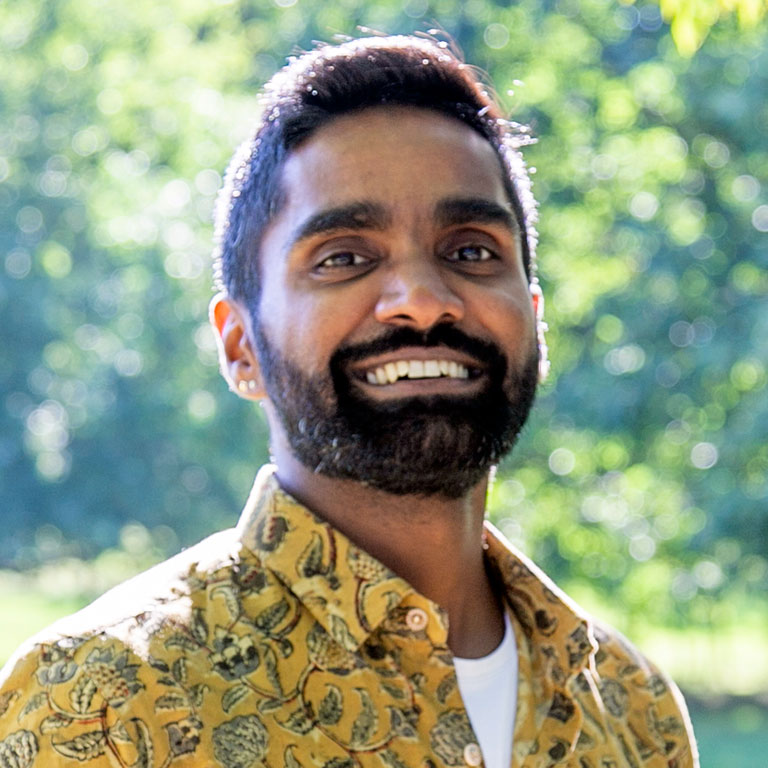
Abstract
Dating as far back as 1789, the U.S. passport has constantly evolved in its function, composition, and structure. The essential goal of this project is to document the progression of the modern passport and visa as well as how this impacts immigrant communities. Through digital archival research, comparisons between U.S. American and other nations’ travel documents, and artistic workshops in the greater community, this project used a myriad of methods to engage and understand how visa documents shape migrant lives and experiences. With hopes to better understand immigrant reactions towards beaucratic assimilation in the U.S., this project facilitates a greater dialogue on the development of international travel documents and their social importance. Ultimately, this project uses the passport photograph as an artistic medium to show the rapport between the influence of the nation-state, travel restrictions, and the complexity of migrant lives.

Luke Swain was an undergraduate student majoring in Economics and Studio Art. He is interested in the intersections between immigration, income inequality, and artistic expression and how they come together to form our modern take on American and other national identities. Luke worked with Professor Vivek Vellanki on how passport and visa photos and their composition have changed and evolved over time along with society's perceptions of them. Luke hopes to conduct more research related to this field into graduate school and beyond.
"An Origin Story: The implications of the Page Act of 1875 on Asian American women and reproductive justice in Indiana"
Christina Yang, Dr. Ellen Wu
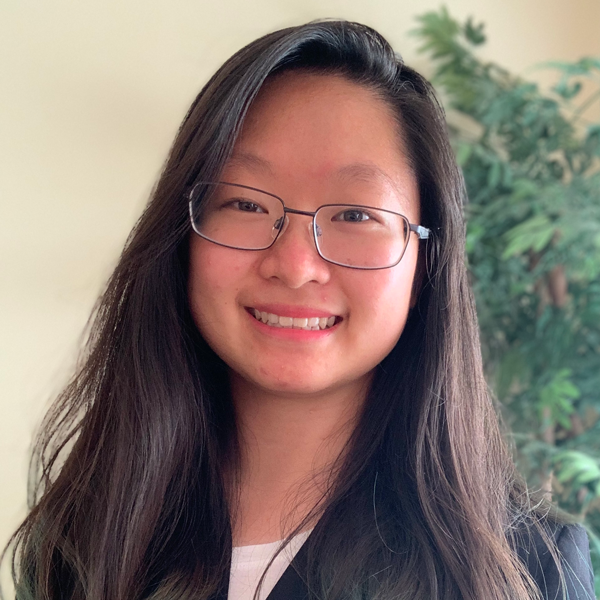
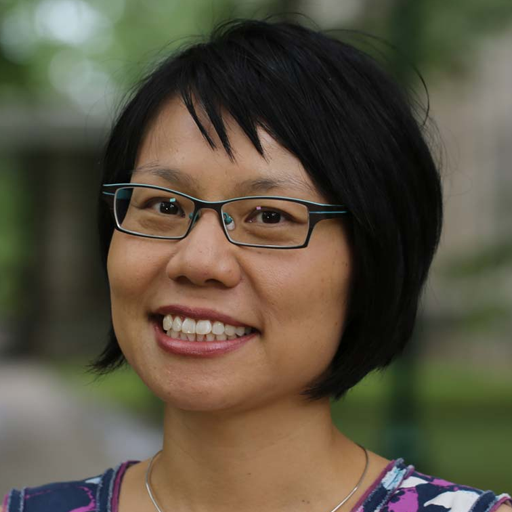
Abstract
In 1875, Congress passed the Page Act to prohibit Chinese female prostitutes from immigrating to the US. Historians in law, Asian American studies, and gender studies have provided some answers about the cause of this event, but they have yet to explore the overlapping systems of oppressions that Asian female immigrants have faced and continue to face. Thus, I attempt to contribute to this discussion through the lens of intersectional history (Schnaffer et. al). I argue that exploring Congress’ imperialist, sexist, and classist attitudes in the 19th century can help explain the current criminalization of Asian female immigrants in Indiana.

Christina Yang was a junior expecting to double major in History and Management + Human Organization. Her research interests lie in Asian American racial justice and reproductive justice. She conducted an independent project with mentorship from Professor Ellen Wu. Christina's research with CRRES aims to extract common themes between the discussions that led to the passage of the Page Act of 1875 and the discussions surrounding the Indiana cases in which two female Asian American immigrants were charged with infanticide (See State v. Bei Bei Shuai and State v. Purvi Patel). Outside of research, Christina spends her time competing at mock trial competitions, contributing as a Board of Aeons member, and dancing with the Di:Verse Dance Crew. After graduation, she hopes to attend law school.
2020-2021 URP Projects
"An Ideological and Organizational Analysis of the Black Lives Matter Movement"
Kia Heryadi, Dr. Fabio Rojas
Abstract
The Black Lives Matter (BLM) movement began in 2013 and reached a new peak in the summer of 2020. This project focuses on ideological and organizational differences between the BLM movement and the classical civil rights movement of the 1950s and 60s. I use data collected from Twitter and documents such as statements and books from the discussion leaders of the BLM movement to illustrate these differences. I argue that the focal point of Black politics has shifted since the classical civil rights movement from the church to fields such as the arts, academia, and journalism. I also explore the unique role of women in the BLM movement compared to past social movements.
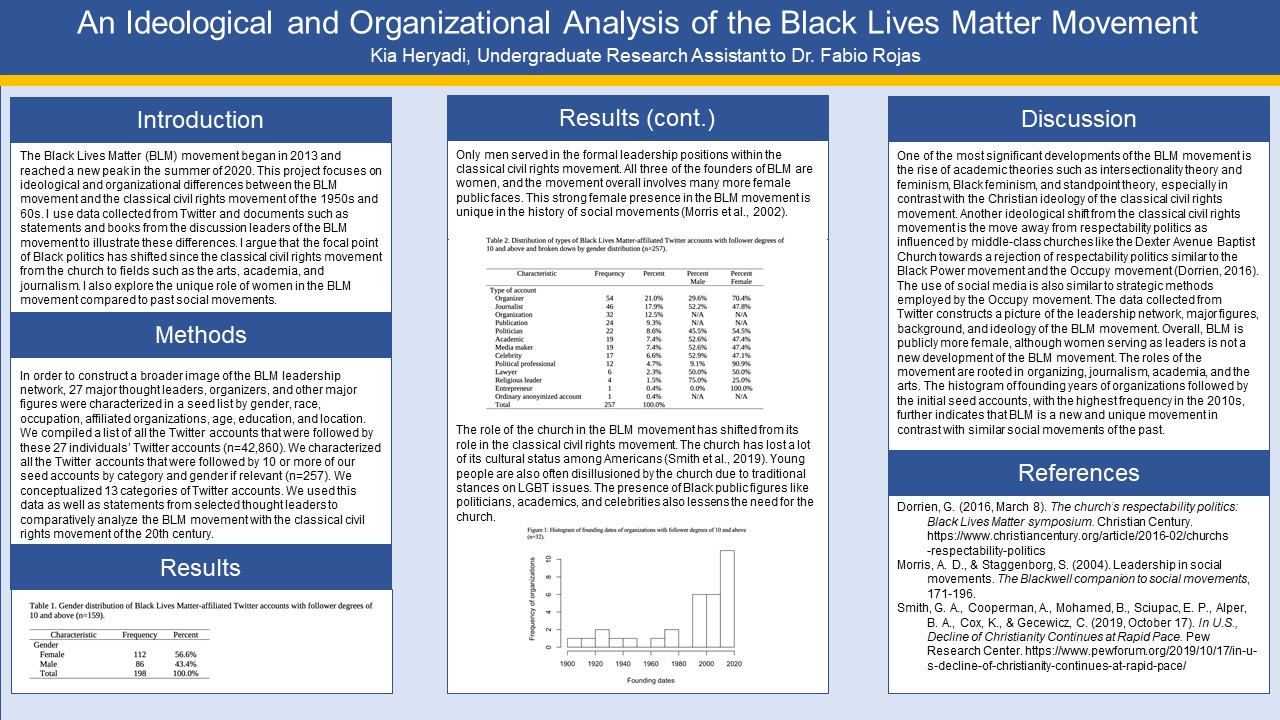
"Loving and the Spectacle of Interrace"
Mofe Koya, Clark Barwick


Abstract
Dr. Clark Barwick’s chapter for Rupturing Post-Racial Fantasies will examine the landmark supreme court case Loving v. Virginia and its role in establishing and conceptualizing a fantastical post-racial America. Since Richard and Mildred Loving won their court case in 1967, their story has been retold many times. I collaborated with Dr. Barwick to analyze how the Loving story has been portrayed in the media by watching films, collecting archived newspaper articles, and reviewing photographs. Throughout our research process, Dr. Barwick and I paid close attention to how the media portrays Richard and Mildred Loving. It became evident that the characterized versions of the Lovings in each source were slightly different depending on the most pressing social issues present during the period in which they were released.

Mofe Koya was an undergraduate student majoring in Public Policy Analysis with a co-major in Law, Ethics, and decision-Making and minoring in Criminal Justice. She is interested in African American literature and history. Mofe worked with Professor Clark Barwick on a project focusing on poet Gwendolyn Brooks and her legacy. Upon graduation, Mofe hopes to pursue a career in law working in criminal defense and social policy.
"Impact of COVID-19 Pandemic and Black Lives Matter Movement on Hiring Discrimination: A Natural Experiment"
Maria Martinez, Koji Chavez
Abstract
Studies suggest that hiring is a critical site for racial and gender discrimination in job mobility. The COVID-19 pandemic has introduced a dramatic shift in the labor market. Additionally, the pandemic also arose during the height of the Black Lives Matter (BLM) movement which raised awareness of systemic racism in the United States. This study investigates whether the COVID-19 pandemic and/or the Black Lives Matter movement have impacted the levels of racial and gender discrimination in hiring. A previous audit study conducted serves as a point of comparison for this natural experiment. The results show that white men and black women benefited in hiring decisions pre-pandemic, while white women benefited over white men mid-pandemic. Preference for black men remained consistent between pre- and mid-pandemic. There were no significant changes in hiring found with the BLM movement. Ultimately, the study showed that even though macro level processes introduce dramatic shifts in the labor market as a whole, it still disproportionately impacts racial and gender groups.

"Adaptations and Augmentations: How Black-owned businesses in Detroit handled struggles"
Jordan Plunkett, Candace Miller
Abstract
The COVID-19 pandemic has brought about several challenges to small businesses, especially those owned by Black people. It has also, however, presented opportunities for adaptations. Understanding both gives us a picture of how these businesses will move forward in the future. In order to get to that point, we collected the information for businesses in certain zip codes around Detroit. I reached out via email, social media, and phone to schedule and conduct 90-minute interviews. Using the collected data, there were several ways in which the business adapted and augmented their offerings to circumvent regulations and maintain safety: by creating new space either physically, digitally, or within a new market. They made these changes in order to dodge financial and operational distress with the help of community resources that teach basic skills like running an online shop to maintain a connection with existing customers and filling out paperwork for grants and loans. Such tactics used to stay in business were employed by businesses in both “traditional” industries like food and retail and “unique” industries. Results varied, though, even across similar types of businesses.

"Composing a Sustainable, Engaging, and Inclusive Performing Arts Organization"
Paula Wilson, Dr. Alisha Jones
Abstract
During the Summer of 2020, performing arts leaders were charged to implement effective diversity, equity, and inclusion strategies within their organizations. The performing arts field has a history of exclusionary practices and gatekeeping that prevents diverse representation onstage and offstage. This research explores effective and replicable changes that must be made by performing arts executives to create a sustainable, engaging, and inclusive arts organization. Interviews were conducted individually with Aubrey Bergauer, former Executive Director of the California Symphony and arts consultant; Tehvon Fowler-Chapman, Executive Director of Washington Concert Opera; Alex Poots, CEO of The Shed; and Afa Dworkin, President and Artistic Director of Sphinx. The interviews and literature review investigates effective marketing, fundraising, and programming methods within performing arts organizations. The compilation of the experience, insight, and creativity of these arts professionals will make this project an accessible and valuable resource for arts administrators, seeking to revive their organization and arts community.

2019-2020 URP Projects
"The Noble Mark: Noble M. Johnson and the Performance of Race" - Professor Cara Caddoo (History, The Media School) and Sam Bowden (History, Media majors)
"The Vampire Britannia: Monsters of the Empire in Helen Oyeyemi's White is for Witching" - Professor Maisha Wester (African American and African Diaspora Studies, American Studies) and Daun Fields (English major)
"An Imperfect Match? Gender and Racial Discrimination in Hiring Across Relative Qualification" - Professor Koji Chavez (Sociology) and Maria Martinez (Neuroscience, Philosophy majors)
"Evidence-Based Internet Treatment of Mental Health and Substance Use in a Community Sample" and "Subjective Social Status as an Indicator of Mental and Physical Health Among Black and Latinx Adults" - Professor Tennisha Riley (Psychological and Brain Sciences) and Kendall Riley (Psychology, Human Biology majors)
"John F. Matheus, Blackness, and the Harlem Renaissance Archive" - Professor Clark Barwick (Communication, Kelley School of Business) and Margaret VanSchaik (International Studies, Near Eastern Languages & Cultures majors)
Dr. Clark Barwick’s project consists of research of the life and works of Harlem Renaissance writer John F. Matheus.
During the 1920s, Matheus was a significant contributor to the so-called “New Negro” movement, publishing award-winning short fiction and plays along with essays and poems in major venues. Matheus’ work was attuned to blackness in immigration, war, and rural life, as well as diasporic blackness, with much of his writing focusing on racial struggle in Haiti, Africa, and Europe.
In his later years, Matheus became an influential scholar, committed to African American higher education and, in particular, foreign language education for African American college students.
Center for Research on Race and Ethnicity in Society
Ballantine Hall Room 622
1020 E Kirkwood Ave, Bloomington, IN 47405
Phone: 812-855-8016
Email:
crres@iu.edu






